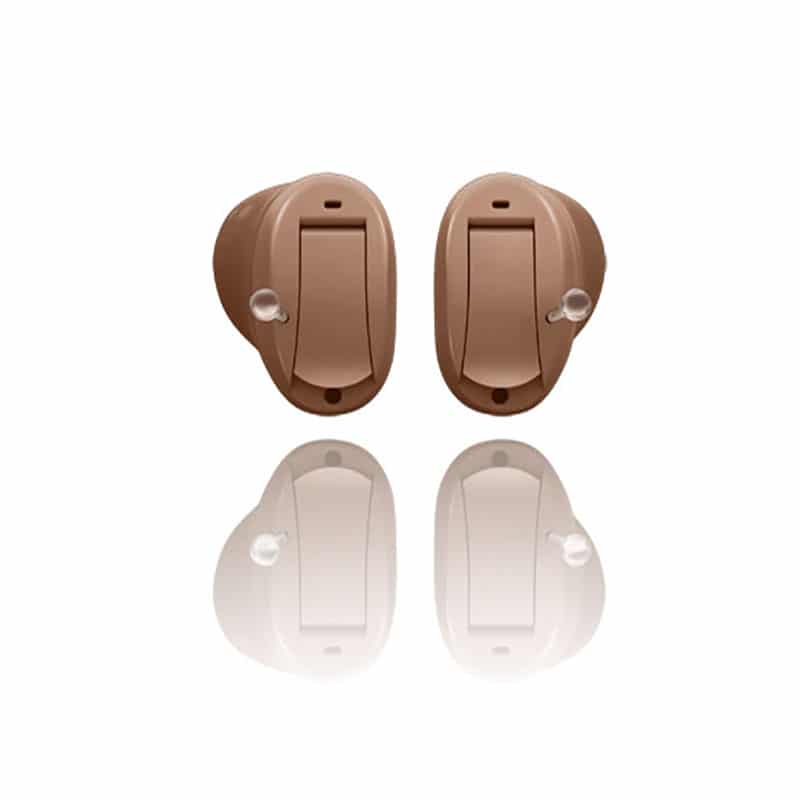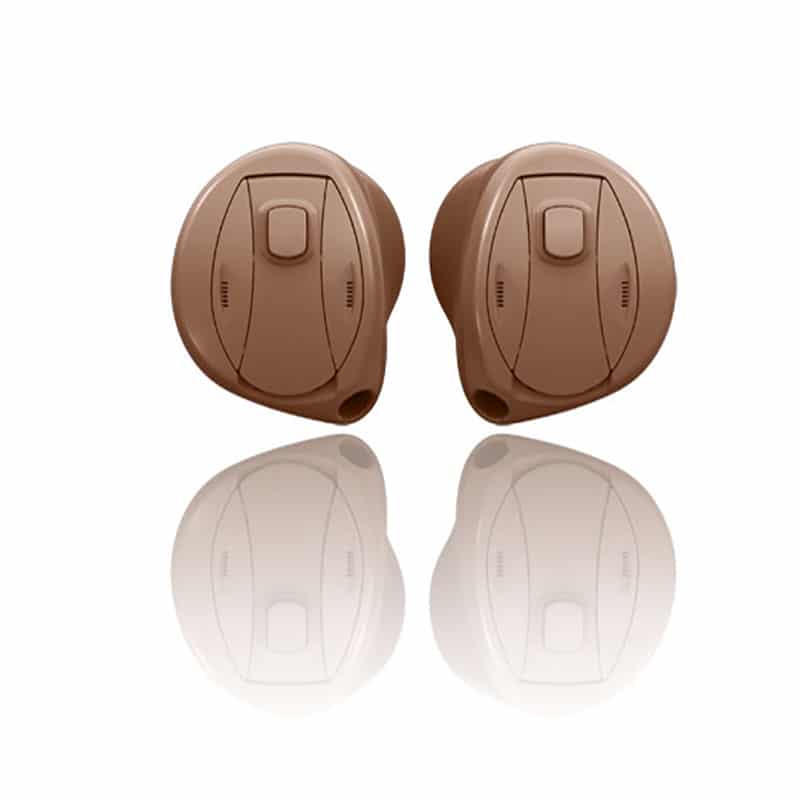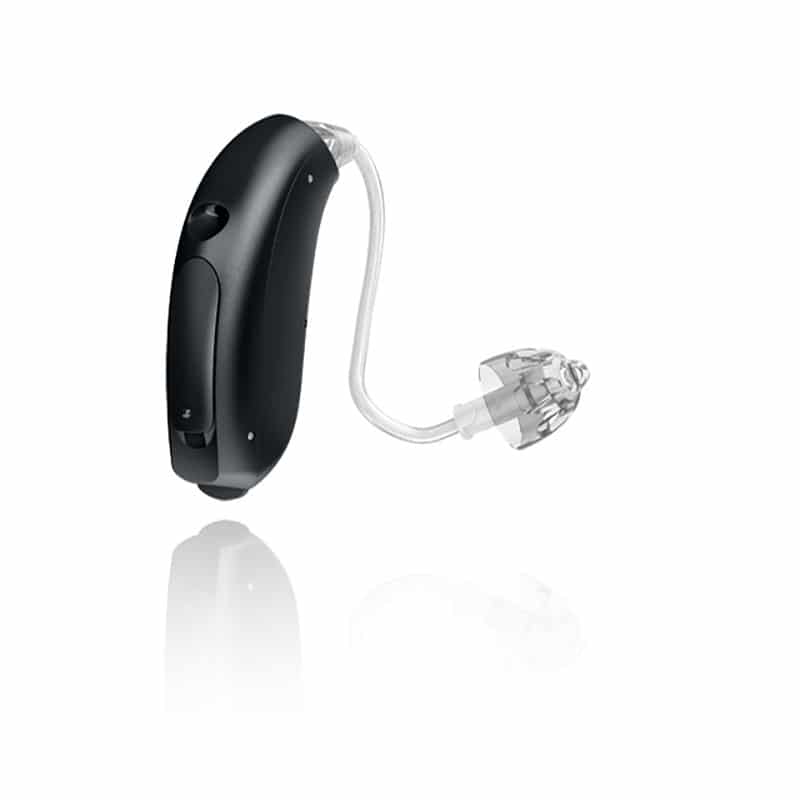Assistive listening devices (ALD) or assistive listening systems (ALS) are amplifiers that bring sound into the ear and separate sounds such as speech from background noise. They can improve speech to noise ratio, which gives a better level of hearing and understanding to the person using the device.
ALDs can be especially useful for entertainment purposes. The types of ALDs include telephone, FM, infrared and inductive loop. They all typically broadcast sound wirelessly.
Telephone amplifiers attach directly to the telephone headset and increase the volume of the telephone. FM ALDs are often used in educational settings because the body-worn transmitter provides mobility and broadcasts through radio technology. Infrared ALDs are popular for places of entertainment because the light based technology does not travel through walls. Inductive loop ALDs use electromagnetic fields to send sound without a body-worn receiver.
If you are interested in ALDs, your hearing healthcare provider can help you decide which on is best for you. Please contact our office at (818) 859-7730.
Hearing aid batteries are a necessary accessory for your hearing device. The most common hearing aid battery is a zinc-air button battery that comes in four sizes. This battery is air activated and remains inactive until its factory-sealed sticker is removed. They can remain inactive for up to three years when stored at room temperature in a dry environment.
When not in use, remove the battery from your hearing aid.
Batteries can last anywhere from three to 20 days based on their per day use cycle. Smaller batteries do not last as long on average because they have less space to store power. There are a couple tips you can use to extend the life of your batteries. When not in use, remove the battery from your hearing aid. This can also extend the life of your hearing aid because it dries out the device.
If removing the battery is not possible, you may also turn the device off. Storing batteries at room temperature can also extend battery life because heat exposure will shorten battery life. You shouldn’t carry batteries loose in pockets, backpacks or purses. When a battery comes in contact with other metals such as coins, the battery can short circuit.
Hearing aid batteries are available in mass retail stores, pharmacies, grocery stores, electronic stores and online retailers. Batteries are also available through hearing healthcare providers such as your audiologist. If you have questions or need to purchase more batteries for your hearing aid, please contact our office at (818) 859-7730.
Hearing aid accessories range from basic to optional. Basic accessories are needed for the daily use and maintenance of your hearing aid. Optional accessories are not needed for everyday use though they make using your hearing aid easier.
Basic accessories include:
- Batteries
- Cleaning Tools
- Carry Case
Optional accessories include:
- Custom Earmolds
- Dehumidifiers
- Bluetooth Streaming Devices
- Assistive Listening Devices
When it comes to accessories for your hearing aid, your audiologist can be a great resource from making suggestions based on your hearing aid style to showing you how to use the accessories. If you have questions about accessories for your hearing aid, please contact our office at (818) 859-7730.
To keep your hearing aid working the way it should, it will need repairs that range from basic to more extensive. When you purchase your hearing aid, your audiologist will show you basic maintenance that may be needed daily. This includes replacing the batteries, cleaning the hearing aid, replacing the wax filter, opening and closing the battery compartment, and checking the input settings.
When you purchase your hearing aid, your audiologist will show you basic maintenance that may be needed daily.
If you perform basic hearing aid maintenance and the hearing aid is still not working, your audiologist can evaluate the device for damages. Damage repair costs will depend on the hearing aid’s warranty, extent of damage, and cost of replacement parts.
Your hearing aid will require replacement if it is totaled and damaged beyond repair. Hearing aids may be totaled if they are more than five years old, damage is visible and extensive, or your hearing aid has already been repaired in the past. If you have questions about hearing aid repairs, please contact our office at (818) 859-7730.
A Bone Anchored Hearing Aid (BAHA) is a surgically implanted hearing device. This device is most beneficial for people of all ages who cannot use an in-the-ear or behind-the-ear hearing aid because BAHA bypasses the ear to transmit sound using bone conduction. Candidates for BAHA may have conductive hearing loss, mixed hearing loss, single-sided deafness or frequent ear infections.
Candidates for BAHA may have conductive hearing loss, mixed hearing loss, single-sided deafness or frequent ear infections.
The device is comprised of a titanium implant, external abutment and sound processor. It is surgically placed behind the ear. After fusing gradually over several months with the skull bone, the external parts can be fit and programmed by an audiologist.
If you or someone you care for is interested in the learning more about BAHA, please contact our office at (818) 859-7730.
Every hearing aid is a device that uses the same basic parts to digitally bring sound into the ear and amplify it, but hearing aids come in different styles with lots of design differences. There are four main styles.
 The completely in the canal (CIC) and mini CIC are molded to fit your ear canal and improve mild to moderate hearing loss in adults.
The completely in the canal (CIC) and mini CIC are molded to fit your ear canal and improve mild to moderate hearing loss in adults.
 The in the canal (ITC) is custom molded fitting partly in the ear canal and improves mild to moderate hearing loss in adults.
The in the canal (ITC) is custom molded fitting partly in the ear canal and improves mild to moderate hearing loss in adults.
 The in the ear (ITE) is custom made in two versions: one that fills most of the outer ear or one that fills only the lower part. Both styles improve hearing for people with mild to severe hearing loss.
The in the ear (ITE) is custom made in two versions: one that fills most of the outer ear or one that fills only the lower part. Both styles improve hearing for people with mild to severe hearing loss.
 The behind the ear (BTE) hooks over the top of your ear and rests behind the ear with the receiver in the ear. People of all ages with any level of hearing loss can use this style. This style also comes in an open fit version that keeps the ear canal open to allow for low-frequency sounds to enter the ear naturally while amplifying high-frequency sounds.
The behind the ear (BTE) hooks over the top of your ear and rests behind the ear with the receiver in the ear. People of all ages with any level of hearing loss can use this style. This style also comes in an open fit version that keeps the ear canal open to allow for low-frequency sounds to enter the ear naturally while amplifying high-frequency sounds.
There are also extended-wear hearing aids and middle ear implants. Extended-wear hearing aids are non-surgically placed in the ear by an audiologist and worn for several months without removal. Middle ear implants are surgically implanted in the space behind the eardrum and vibrate the middle ear.
If you have been prescribed a hearing aid for your hearing loss, you should discuss your hearing needs and expectations with your audiologist to find the best hearing aid style for you. Please contact our office at (818) 859-7730 to schedule an appointment with our audiologist.
There is a variety of hearing aids available and selecting one can be overwhelming. An audiologist can help you find the hearing aid style that best fits your hearing needs and lifestyle. Audiologists are experts in hearing evaluations and hearing devices. They can also help fit your hearing aid and program it based on your hearing needs.
Audiologists are experts in hearing evaluations and hearing devices.
Although your audiologist can be a great resource, you will want to keep some tips in mind when shopping for your hearing aid. They include:
- Look for a hearing aid that can adapt to your hearing needs over time since the life of a hearing aid is three to five years.
- Hearing aids cannot restore your hearing to normal or eliminate all background noise, but there is new technology that aims to minimize background noise.
- Ask your audiologist if a hearing aid includes a warranty that covers parts and labor.
- The cost of a hearing aid, professional fees and accessories is a significant expense you should plan for. Speak with your insurance carrier about hearing aid coverage in your policy before your buy.
If you need a hearing aid, please contact our office at (818) 859-7730 to schedule an appointment with our audiologist.

 The completely in the canal (CIC) and mini CIC are molded to fit your ear canal and improve mild to moderate hearing loss in adults.
The completely in the canal (CIC) and mini CIC are molded to fit your ear canal and improve mild to moderate hearing loss in adults. The in the canal (ITC) is custom molded fitting partly in the ear canal and improves mild to moderate hearing loss in adults.
The in the canal (ITC) is custom molded fitting partly in the ear canal and improves mild to moderate hearing loss in adults. The in the ear (ITE) is custom made in two versions: one that fills most of the outer ear or one that fills only the lower part. Both styles improve hearing for people with mild to severe hearing loss.
The in the ear (ITE) is custom made in two versions: one that fills most of the outer ear or one that fills only the lower part. Both styles improve hearing for people with mild to severe hearing loss. The behind the ear (BTE) hooks over the top of your ear and rests behind the ear with the receiver in the ear. People of all ages with any level of hearing loss can use this style. This style also comes in an open fit version that keeps the ear canal open to allow for low-frequency sounds to enter the ear naturally while amplifying high-frequency sounds.
The behind the ear (BTE) hooks over the top of your ear and rests behind the ear with the receiver in the ear. People of all ages with any level of hearing loss can use this style. This style also comes in an open fit version that keeps the ear canal open to allow for low-frequency sounds to enter the ear naturally while amplifying high-frequency sounds.